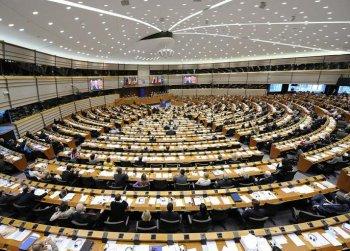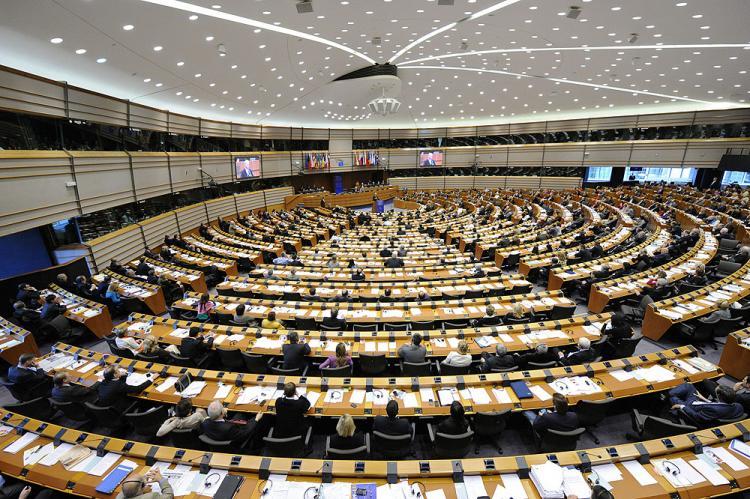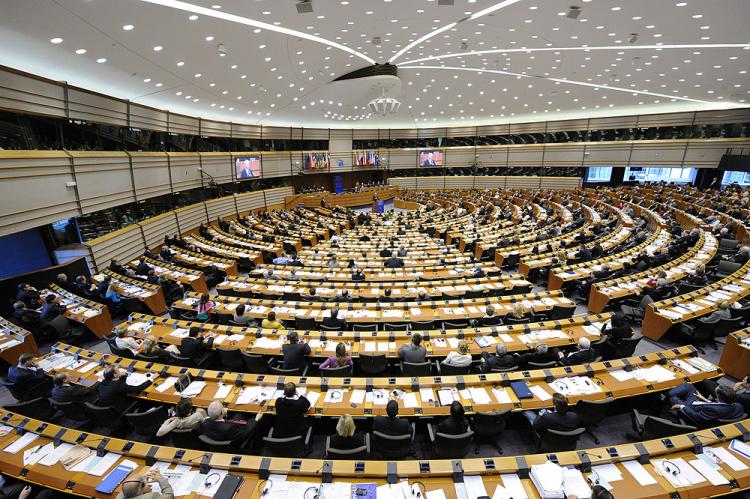A directive was adopted by a majority vote in the European Parliament (EP) aimed at increasing the safety and quality of organ transplants in the European Union (EU). It stresses that “member States should intensify their cooperation under the auspices of Interpol and Europol in order to address the problem of trafficking in organs more effectively.”
With a dozen people dying each day while on waiting lists for organ transplants in the EU and 56,000 patients waiting for transplants, a growing number of people are resorting to organ tourism.
The EP lawmakers are now seeking tougher measures to prevent its citizens from traveling abroad to receive organ transplants with organs acquired through organ trafficking.
“One can’t speak about organ donation without mentioning the dark side of it,” said German Member of the European Parliament Peter Liese, a major proponent of the directive, and a medical doctor.
“We are completely against any kind of organ tourism.”
Under the new directive voted on May 19, EU states will establish national offices to oversee organ donation and ensure that every hospital conducting transplants has “transplant coordinators” to discuss transplantation with the families of living and deceased donors.
The EP’s vote encourage organ transplantation but crack down on illegal trafficking, in essence to ensure the quality of organs to improve donation rates.
With the new initiative, all organ donations must be “altruistic, voluntary, and unpaid.”
Liese has a particular concern about organ tourism to China. “We are very, very worried by the report of David Kilgour and David Matas; there is evidence that Falun Gong practitioners are killed for their organs in China.”
A report published by former Canadian Secretary of State, Hon. David Kilgour and human rights attorney David Matas, concludes that practitioners of Falun Gong in China have been killed in the thousands so that their organs could be sold to both Chinese nationals and foreigners.
“We have concluded that the government of China and its agencies in numerous parts of the country, in particular hospitals but also detention centres and ‘people’s courts’, since 1999 have put to death a large but unknown number of Falun Gong prisoners of conscience. Their vital organs, including kidneys, livers, corneas and hearts, were seized involuntarily for sale at high prices, sometimes to foreigners, who normally face long waits for voluntary donations of such organs in their home countries,” concludes the investigation.
“The main conclusion of our book is that there continues today to be large-scale organ seizures from unwilling Falun Gong practitioners,” said Kilgour speaking at the European Parliament.
Falun Gong is a Chinese meditation practice that espouses the values of truth, compassion, and forbearance, but has been the target of repression in China since 1999.
Practitioners of Falun Gong comprise two-thirds of the torture victims and half of the people in detention in ’re-education through labor' camps across China according to numbers from the United Nations and U.S. State Department.
“I strongly oppose such a behavior to put someone to death just because someone else needs an organ ... who are probably coming to Shanghai to get an organ from executed people in China,” said Miroslav Mikolasik, the main rapporteur for the new EP organ transplant regulations.
As part of an action plan adopted by the Parliament, the European Commission, the executive body of the European Union, has been asked to research the forced organ removal from Falun Gong practioners in China.
To ensure the integrity of the organ transplants members of European Parliament say they will require all transplants to be “voluntary and unpaid.”
“In order to prevent illegal organ trafficking, any commercialization or financial incentives must be strictly excluded” said Mikolasik.
“Europe is campaigning for the principle of voluntary unpaid donation all over the world, for example at the World Health Organization, and now we made it very clear that we are not willing to compromise on this. I hope it will also convince other continents,” said Liese.
At present 20 percent of all organ transplants in the EU involve organs exchanged between countries. Eurotransplant, the largest organization governing such activities assures quality and safety standards of organ exchange between Austria, Belgium, Croatia, Germany, Luxembourg, the Netherlands, and Slovenia.
The directive also covers cooperation from donation to transplantation between all member states.
With a dozen people dying each day while on waiting lists for organ transplants in the EU and 56,000 patients waiting for transplants, a growing number of people are resorting to organ tourism.
The EP lawmakers are now seeking tougher measures to prevent its citizens from traveling abroad to receive organ transplants with organs acquired through organ trafficking.
“One can’t speak about organ donation without mentioning the dark side of it,” said German Member of the European Parliament Peter Liese, a major proponent of the directive, and a medical doctor.
“We are completely against any kind of organ tourism.”
Under the new directive voted on May 19, EU states will establish national offices to oversee organ donation and ensure that every hospital conducting transplants has “transplant coordinators” to discuss transplantation with the families of living and deceased donors.
The EP’s vote encourage organ transplantation but crack down on illegal trafficking, in essence to ensure the quality of organs to improve donation rates.
With the new initiative, all organ donations must be “altruistic, voluntary, and unpaid.”
Liese has a particular concern about organ tourism to China. “We are very, very worried by the report of David Kilgour and David Matas; there is evidence that Falun Gong practitioners are killed for their organs in China.”
A report published by former Canadian Secretary of State, Hon. David Kilgour and human rights attorney David Matas, concludes that practitioners of Falun Gong in China have been killed in the thousands so that their organs could be sold to both Chinese nationals and foreigners.
“We have concluded that the government of China and its agencies in numerous parts of the country, in particular hospitals but also detention centres and ‘people’s courts’, since 1999 have put to death a large but unknown number of Falun Gong prisoners of conscience. Their vital organs, including kidneys, livers, corneas and hearts, were seized involuntarily for sale at high prices, sometimes to foreigners, who normally face long waits for voluntary donations of such organs in their home countries,” concludes the investigation.
“The main conclusion of our book is that there continues today to be large-scale organ seizures from unwilling Falun Gong practitioners,” said Kilgour speaking at the European Parliament.
Falun Gong is a Chinese meditation practice that espouses the values of truth, compassion, and forbearance, but has been the target of repression in China since 1999.
Practitioners of Falun Gong comprise two-thirds of the torture victims and half of the people in detention in ’re-education through labor' camps across China according to numbers from the United Nations and U.S. State Department.
“I strongly oppose such a behavior to put someone to death just because someone else needs an organ ... who are probably coming to Shanghai to get an organ from executed people in China,” said Miroslav Mikolasik, the main rapporteur for the new EP organ transplant regulations.
As part of an action plan adopted by the Parliament, the European Commission, the executive body of the European Union, has been asked to research the forced organ removal from Falun Gong practioners in China.
To ensure the integrity of the organ transplants members of European Parliament say they will require all transplants to be “voluntary and unpaid.”
“In order to prevent illegal organ trafficking, any commercialization or financial incentives must be strictly excluded” said Mikolasik.
“Europe is campaigning for the principle of voluntary unpaid donation all over the world, for example at the World Health Organization, and now we made it very clear that we are not willing to compromise on this. I hope it will also convince other continents,” said Liese.
At present 20 percent of all organ transplants in the EU involve organs exchanged between countries. Eurotransplant, the largest organization governing such activities assures quality and safety standards of organ exchange between Austria, Belgium, Croatia, Germany, Luxembourg, the Netherlands, and Slovenia.
The directive also covers cooperation from donation to transplantation between all member states.







Friends Read Free